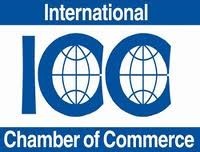Back CN
Back CN
Translate to:
Bulgaria ranked 14th place by trade openness
To spur global economic and job growth we need to be opening markets rather than erecting new barriers to trade
A classification of the International Chamber of Commerce (ICC) – Paris places our country next to Denmark, Sweden, Slovak Republic, Iceland and Hungary according to an Open Market Index, indicating trade openness.
The aggregate rank of the selected countries was achieved by analyzing data according to four indicators: trade openness, trade policy regime, international capital inflows and infrastructure for trade. Final scores were grouped according to performance categories “most open, excellent”, “above average openness”, “average openness”, “below average openness”, and “very weak”.
Bulgaria falls under the “above average openness” category with 4.3 points (14th place). Only two economies, Hong Kong and Singapore, received a score of “excellent” in terms of their openness to trade.
The ICC Open Market Index was conducted for the first time this year by the ICC Research Foundation. The aim of the Index, which is set to be issued yearly, is to monitor openness to trade and investment, and to provide a business benchmark for policymakers.
75 countries were selected in the Index – which covers 95% of world imports of goods and services in 2009 – including 35 developed countries, 37 developing economies and three successor states of the former USSR (Russian Federation, Ukraine and Kazakhstan).
G20 countries only ranked average out of 75 countries for their openness to trade. The most open of the G20 countries is Germany, followed by the United Kingdom, Saudi Arabia, France and Australia. The United States ranked roughly in the middle of the sample at number 39, followed closely by Japan at number 43. Brazil ranked last out of the G20 countries. The five other G20 countries with “below average openness”, according to the Index, were China, Mexico, Russia, Argentina and India.
“The threat of increased protectionism coming from the world’s major economies is troubling. We need to be opening markets rather than erecting barriers to trade to spur global economic and job growth,” said ICC Chairman Gerard Worms.
ICC warns that the Index’s results amplify the urgent need to get beyond the Doha Round stalemate and define a more flexible approach for achieving a Doha Agreement. This is an important conclusion in view of the upcoming World Trade Organization (WTO) Ministerial Conference. But this will require greater leadership from the world’s largest economies, which need to set an example in terms of trade openness.
The Bulgarian Chamber of Commerce and Industry, as member of ICC, supports the position of reducing tariff and non-tariff barriers for businesses and continues to lend its support and assistance to facilitate cooperation between Bulgarian businesses and their foreign partners.
ICC’s detailed report is available at:
21.12.2011

 1 USD =
1 USD =  1 GBP =
1 GBP =  1 CHF =
1 CHF =  ISO 9001:2015
ISO 9001:2015
























